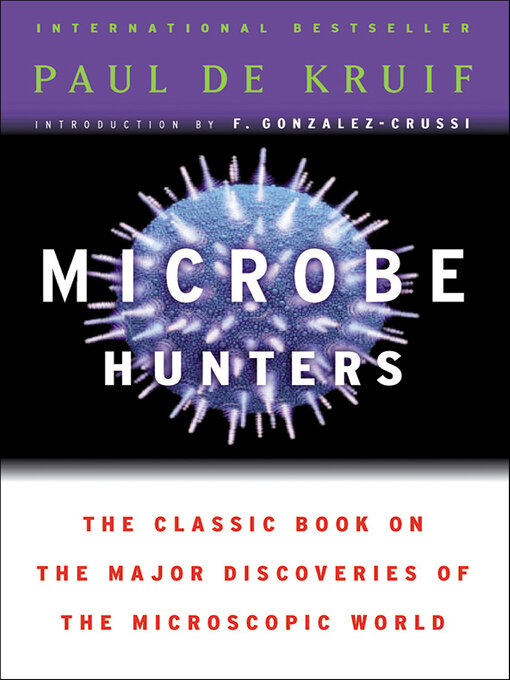-
Description
-
Creators
-
Details
This is a timeless dramatization of the scientists, bacteriologists, doctors, and medical technicians who discovered the microbes and invented the vaccines to counter them. De Kruif writes about how seemingly simple but really fundamental discoveries of science—for instance, how a microbe was first viewed in a clear drop of rain water, and when, for the first time, Louis Pasteur discovered that a simple vaccine could save a man from the ravages of rabies by attacking the microbes that cause it.
"It manages to delight, and frequently to entrance, old and new readers [and] continues to engage our hearts and minds today with an indescribable brand of affectionate sympathy." –– F. Gonzalez-Crussi, from the Introduction.

- Paul de Kruif - Author
- F. Gonzalez-Crussi - Author of introduction, etc.
Kindle Book
- Release date: March 19, 2024
OverDrive Read
- ISBN: 9780547542102
- Release date: March 19, 2024
EPUB ebook
- ISBN: 9780547542102
- File size: 888 KB
- Release date: March 19, 2024
Formats
Kindle Book
OverDrive Read
EPUB ebook
subjects
Languages
English
Levels
Lexile® Measure:1270
Text Difficulty:10-12
